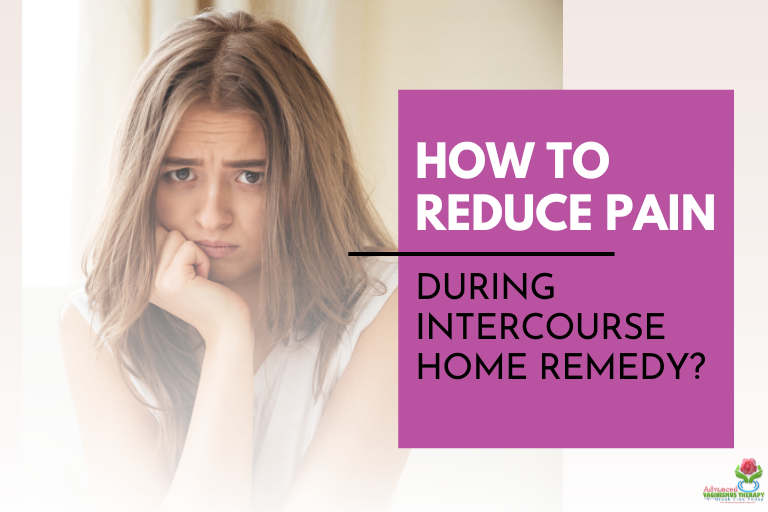Have you ever had painful sex? If you have, has it left you not wanting more? (Which is the opposite of how our society depicts it?) But who can you talk to if you’ve had an experience like that? And will the other person be understanding and not take it personally if you’ve had a bad experience?
First of all, I do hope you have someone in the relationship with you who is an empathetic and understanding person, someone you feel safe discussing even the most intimate topics with.
If not, that’s why I’m here. I went through this in my own relationship years ago and I want to make sure no one has to struggle the way we did. Because I believe in making sure each person receives custom, private care, I set up my care to be done from the comfort of your own home.
DYSPAREUNIA = PAINFUL SEX?
Now, before we dive into how I can help, let’s discuss a few reasons why you might be experiencing pain during intercourse. Also know this, many women (and men) have experienced painful sex for a multitude of reasons, so you’re not the odd one out if you’re having some issues.
If you’ve searched “pain during sex” or “painful intercourse” chances are you’ve come across the word “Dyspareunia” (pronounced dis-puh-ROO-nee-uh). It’s basically just a medical term for pain that happens before, during or even sometimes for hours after sex. You can find the full definition and symptoms here: https://www.mayoclinic.org/diseases-conditions/painful-intercourse/symptoms-causes/syc-20375967 but the different types of pain can range anywhere from some pain during sex to extreme pain during any sort of penetration. Which is also known as Vaginismus. This specifically is what so deeply impacted my relationship.
UNDERSTANDING WHY:
Like I said before, if you’re experiencing trouble during intercourse, you’re not strange or abnormal. There are many reasons why you could be experiencing pain during intercourse. (Even if you’ve had great sex in the past!)
Here’s a few reasons to help troubleshoot why you could be experiencing pain:
- For some women, going through something as simple as menopause can cause hormones to fluctuate greatly, causing their body to stop producing as much natural lubrication. Or sometimes not enough foreplay or discomfort with a new partner can cause uncomfortable experiences. Change of diet, lifestyle, purchasing lubrication or sometimes just some couples therapy can help.
- Injury or any sort of trauma: A car accident that impacted your pelvis, a difficult childbirth (which can include an episiotomy) or previous surgeries can cause pain and discomfort when not healed properly. Sometimes these need a physical doctor consultation and sometimes these are also rooted in mental issues and benefit from one-on-one counseling.
- Any sort of infection or inflammation: Some people struggle with Eczema or skin disorders, and sometimes bladder infections or Yeast infections can also cause pain in the urethra or vaginal area. Sometimes an STD can also cause pain and irritation. A change in diet or a prescribed medication and care process should be able to treat these issues.
- Vaginismus: This is what my wife struggled with, and is something many women all around the world have experienced. It means an extreme (involuntary) tightening of the muscles. This causes pain (extreme pain for some women!) for any penetration attempts. Now, because this is heavily linked to the mental as well as to the physical, there are varying ways it manifests. For some women, anything including a finger or tampon is too much. But for others, it only manifests during moments of intimacy. Either way, this is something I’ve walked through, and something I can help you with easily from the comfort of your own home. As easy as a home remedy.
WHAT DOES THIS MEAN FOR ME?
Remember, Dyspareunia and Vaginismus both cover a wide array of symptoms. For Dyspareunia, you can feel pain in a wide array of areas, including your lower back, uterus or even bladder. And there’s no specific time it comes, it varies by the person. Vaginismus doesn’t necessarily mean “pain upon any penetration” some women have milder versions. For both of these things, it’s basically just putting a big name on something you may have already been struggling with.
Know this: you may feel like the problem, but you’re actually the solution.
Me and my wife spent time working through this so I could save you time walking through this. I believe every relationship should be free of any pain or fear in their intimate life, and I believe every person should be able to share their struggles in a safe and comfortable environment.
These aren’t some rare diseases, they can come through a lot of things that you experience in the wide range of life: childbirth, menopause, or even things like continual tenseness through exercise and simple inexperience. And because most of these things are just part of the human experience, they shouldn’t impair your intimate relationship with someone you care about.
That’s why I believe every woman should be able to talk with someone who can hear their individual story and be able to customize the care to the situation.
To make things comfortable and respect the intimacy of this topic, we do a free strategy call that you’re able to do online, which you can easily do from home, wherever and whenever works for you.
You don’t need to buy some special cream or tool or try to find a doctor who will recommend something for you to try.
No more random, unhelpful Google searches. Or you trying to find answers in an awkward conversation with a friend or family member.
Click the link to talk to someone from the comfort of your own home. https://advancedvaginismustherapy.com/bookings/
You can do it easily over Zoom from the privacy of your house. Click here to start your journey: https://advancedvaginismustherapy.com/bookings/
Still on the fence? Check out all these stories of people who experienced the same thing and are now living in freedom: https://advancedvaginismustherapy.com/stories/

